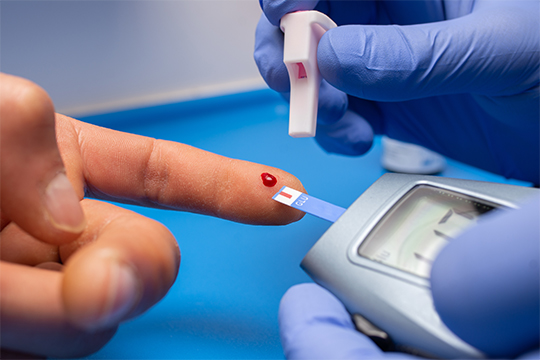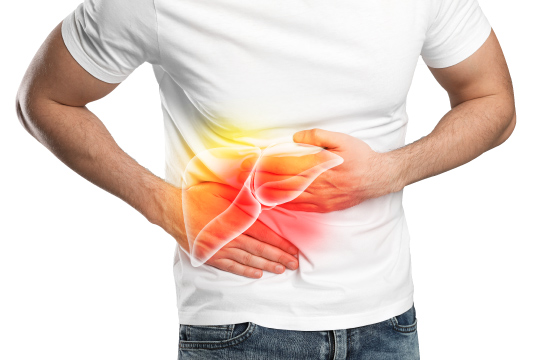Home > Disease and Treatments > COPD- Symptoms. Diagnosis and Treatment
COPD- Symptoms. Diagnosis and Treatment
Chronic obstructive pulmonary disease, or COPD, causes breathing problems and airflow obstruction. The disease involves chronic bronchitis and emphysema. As a result of COPD, these two conditions usually occur together but can vary in severity Even though COPD is a progressive disease, it can be treated. The majority of people with COPD can improve their quality of life and control their symptoms with proper management.
COPD symptoms include:
- Breathing problems, especially during physical activity
- A wheezing sensation
- A feeling of tightness in the chest
- Mucus (sputum) produced by a chronic cough may be clear, white, yellow, or green
- Infections of the respiratory system frequently
- Energy deficit
- Loss of weight unintentionally (in later stages)
- Ankle, foot, or leg swelling
The main cause of COPD
The primary reason for developing Chronic Obstructive Pulmonary Disease (COPD) is tobacco smoke. If you currently smoke or have a history of smoking, you are at a higher risk of developing COPD. Additionally, exposure to indoor or outdoor air pollution, a family history of COPD, and frequent respiratory infections like pneumonia can also increase your risk of developing the condition.
Complications
COPD can lead to various complications, which include respiratory infections such as colds, flu, and pneumonia. These infections can further damage lung tissue, making breathing harder for individuals with COPD. It can also increase the risk of heart disease and heart attack, although the reasons behind this are not yet fully understood. Additionally, people with COPD are at higher risk of developing lung cancer, as well as high blood pressure in the arteries that transport blood to the lungs (pulmonary hypertension). Difficulties in breathing caused by COPD can prevent individuals from engaging in activities they enjoy, leading to the development of depression.
Diagnosis of COPD
- Spirometry is the most common lung function test. COPD can be diagnosed with a spirometry test. You can measure how much and how fast you exhale using a spirometer. Using this test, your healthcare provider can determine the health of your lungs.
- Chest X-ray. An X-ray of the chest can reveal emphysema, a leading cause of COPD. X-rays can also rule out other lung or heart problems
- CT scan. CT scans of your lungs can detect emphysema and determine if you may benefit from COPD surgery. It is also possible to screen for lung cancer with CT scans.
- Oximetry or Arterial Blood Gap Analysis. During this test, your lungs are assessed for their efficiency in supplying oxygen to your blood and removing carbon dioxide from it
- Laboratory tests. A lab test cannot diagnose COPD, but it can be used to determine the cause of your symptoms or rule out other conditions. Among other things, lab tests can reveal if you have alpha-1-antitrypsin deficiency, a genetic disorder that is thought to cause COPD in some people. Having a family history of COPD and developing COPD at a young age may necessitate this test.
Treatment Perspectives to reduce symptoms and improve your quality of life against COPD:
- Quit smoking. Stopping smoking is the most important part of treatment for smokers.
- moking and other air pollutants should be avoided at home and work.
The following treatment options may also be considered by your doctor:
Medications.
To treat the symptoms and complications of COPD, a variety of medications are used. Certain medications may be taken regularly, while others may be taken as needed.
- Bronchodilators
- Inhaled steroids
- Combination inhalers
- Oral steroids
- Antibiotics
Lung therapies
- Pulmonary rehabilitation program. Generally, these programs include exercise training, nutritional advice, and counselling. Various specialists will assist you in customizing your rehabilitation program.
- Oxygen therapy. You may need supplemental oxygen if your blood lacks oxygen. You can carry portable oxygen devices around town and run errands while getting oxygen into your lungs, including lightweight, portable units.
- Prevention and treatment of lung infections. COPD patients are more likely to suffer from lung infections. People with COPD need specific vaccinations, including flu and pneumonia vaccines. If necessary, antibiotics should be administered to treat respiratory infections.
Disclaimer: This is general information about the disease and treatment options, please consult a specialist doctor for the right diagnosis and treatment which may vary based on each patient. Book an appointment with your specialist to know further.
We offer one of the most comprehensive Interventional Pulmonology Services In India. Our Pulmonary and Sleep Medicine includes 3 of the leading Interventional Pulmonologists of the country supported by over 15 full-time staff. We hold clinical and research expertise in a broad range of diseases including asthma, COPD, tuberculosis, interstitial lung disease, lung cancer, pulmonary hypertension, sarcoidosis, and sleep medicine.





